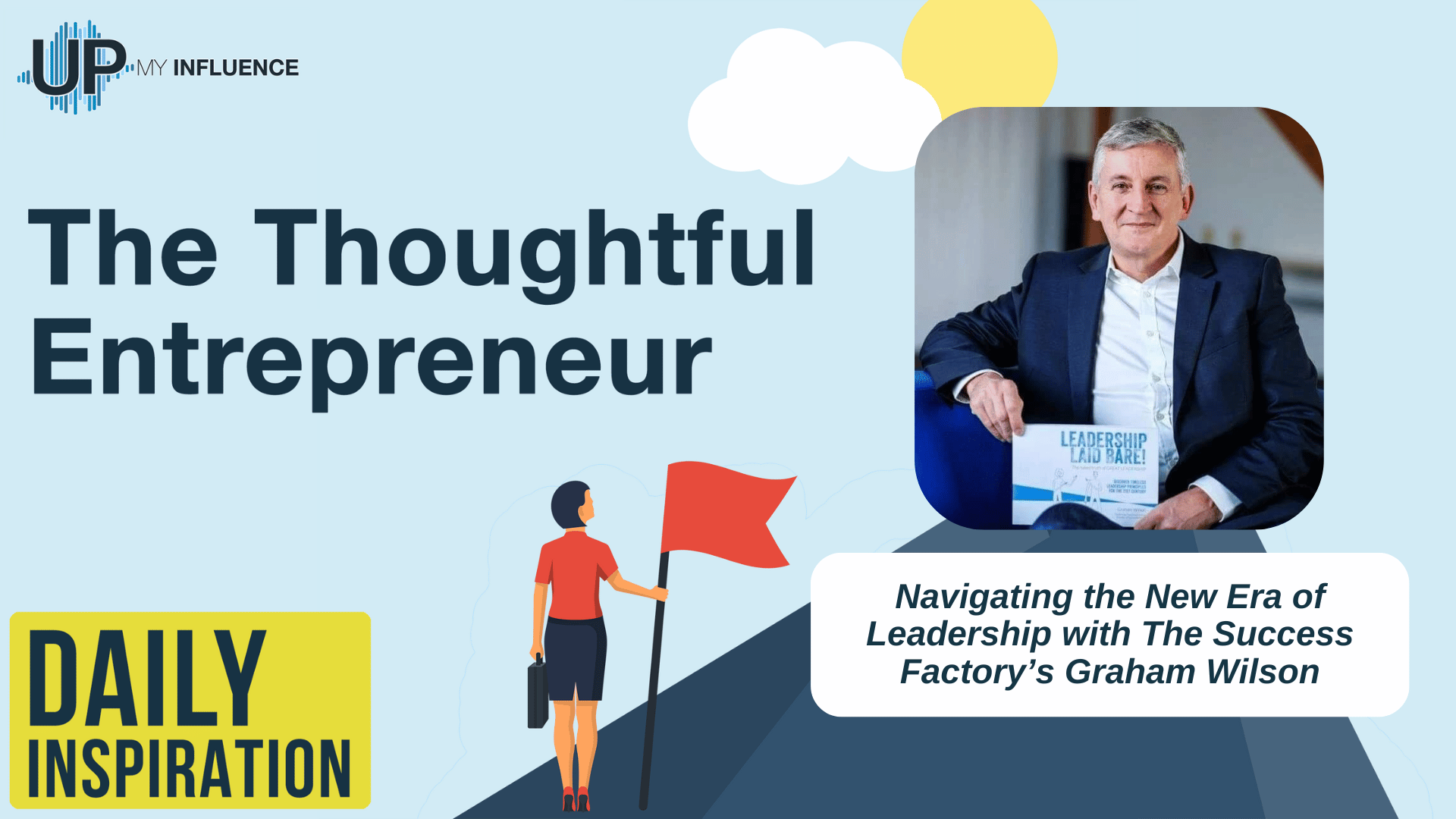THE THOUGHTFUL ENTREPRENEUR PODCAST
 A Comprehensive Guide to Modern Leadership
A Comprehensive Guide to Modern Leadership
In a recent podcast episode hosted by Josh, listeners were treated to an enlightening conversation with Graham Wilson, a renowned leadership expert and founder of Success Factory. Dubbed a “leadership wizard” by a client, Graham brings over three decades of experience in leadership, from his early days in the British Army to his current role in corporate leadership. This blog post delves into the key themes and insights from the episode, offering actionable advice and detailed explanations to help leaders at all levels navigate the complexities of modern leadership.
Graham Wilson's title of “leadership wizard” was coined by a client who appreciated his ability to simplify complex leadership concepts. This simplicity is a cornerstone of his approach, focusing on helping leaders decode what effective leadership looks like in today’s fast-paced world. Reflecting on his extensive career, Graham recounts his early experiences in the British Army, where he learned the importance of teamwork and high performance. He was introduced to the concept of “mission command,” which emphasizes empowering teams to make decisions to achieve a shared purpose. This experience starkly contrasted with his observations in the corporate world, where he found organizations often over-managed and under-led.
Today, Graham believes we are in a new era of leadership characterized by rapid change and uncertainty. He describes the current environment as “VUCA” (volatile, uncertain, complex, and ambiguous), which requires leaders to adopt a more agile and collaborative mindset. The traditional model of leadership, where leaders have all the answers, is no longer viable. Instead, leaders must foster a culture of empowerment, allowing team members to contribute to problem-solving and decision-making. By integrating these principles and practical tips into your leadership approach, you can create high-performance environments, inspire your team, and leave a lasting impact on your organization.
About Graham Wilson:
Graham is a Leadership Expert, author of Leadership Laid Bare, The New Leadership Manifesto and wabisugi. He is the creator of ChangePro and the inspiration behind Successfactory.
Described by clients as the UK's #1 Leadership Trainer and Coach, Graham is trusted by many leading global brands to develop their leaders and teams.
Graham's specialities include:
Leadership Development, Strategy Creation and Implementation, Value Innovation, Vitality, Agility, Leading Change, Resilience, Developing Elite Teams, Executive Coaching, Programme and Project Management and Sales Force Transformation. Graham is also a keynote speaker at leading conferences around the world.
About The Success Factory:
Our purpose is to awaken possibility in leaders and teams to deliver extraordinary results. We believe that in today’s competitive, volatile, uncertain, complex and ambiguous world there is a better way to lead organisations.
In times of fast change organisations need outstanding leaders, not just great managers. We focus on developing your leadership capability in 5 critical areas:
New World Leadership Skills: We have worked out what successful leaders actually do to deliver outstanding results. We have decoded this into a system of pragmatic tools and techniques that we want to share with you.
Strategy and Culture: Hope is not the only strategy! We help you to create and translate strategy into action. We will share with you the latest techniques for developing New World strategies at all levels in the organisation.
Apply to be a Guest on The Thoughtful Entrepreneur: https://go.upmyinfluence.com/podcast-guest
Links Mentioned in this Episode:
Want to learn more? Check out The Success Factory website at
https://www.thesuccessfactory.co.uk/
Check out The Success Factory on LinkedIn at
https://www.linkedin.com/company/400208
Check out Graham Wilson on LinkedIn at
https://uk.linkedin.com/in/leadershipwizard
Don’t forget to subscribe to The Thoughtful Entrepreneur and thank you for listening. Tune in next time!
More from UpMyInfluence:
We are actively booking guests for our The Thoughtful Entrepreneur. Schedule HERE.
Are you a 6-figure consultant? I’ve got high-level intros for you. Learn more here.
What is your #1 Lead Generation BLOCKER? Take my free quiz here.
Want to learn more about all the podcasts managed by UpMyInfluence? Opt in here.
Innovation: We help you to create a culture and process where people consistently develop great ideas to improve results. We can help you ensure innovation is part of your DNA.
Leading Change: Great leaders know how to operate with speed, agility and to make change happen. We show you how to do this. We will show you how to lead change by taking people with you.
Building Elite Teams: We will teach you a powerful range of tools and techniques to ensure you know how to build high performance teams. We ensure that you know how to set up your teams for success and sustain high performance.

